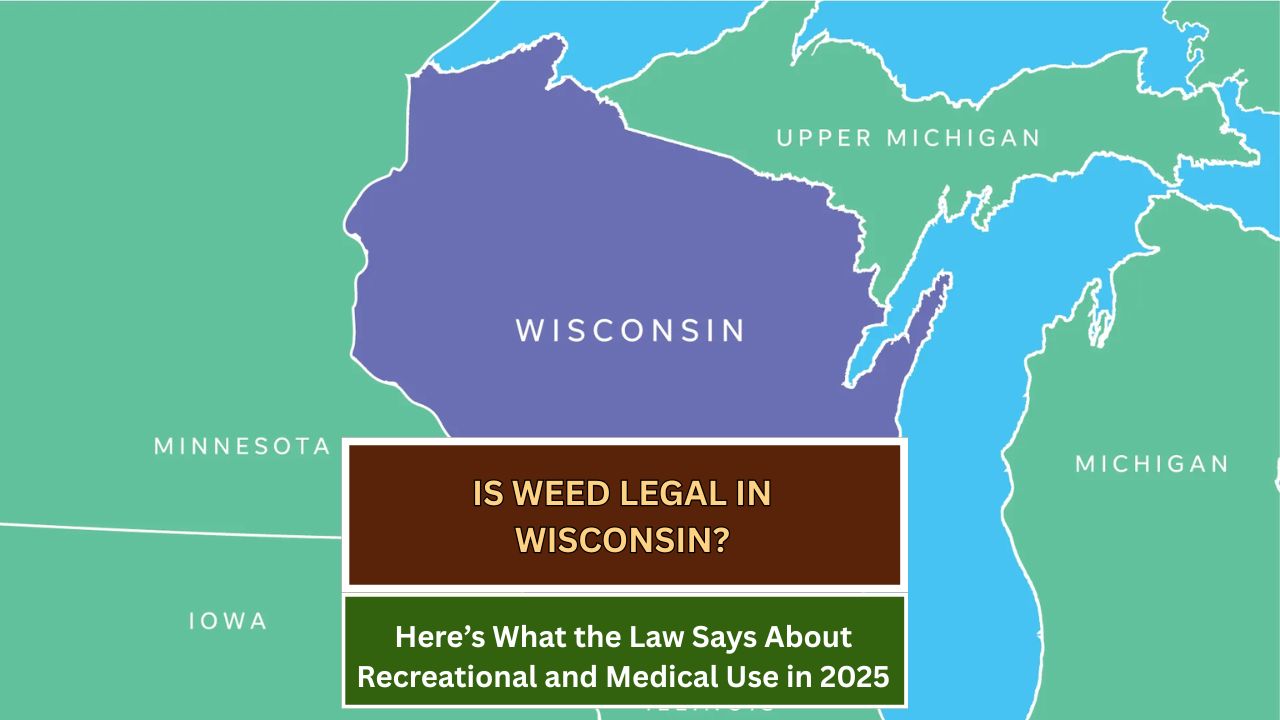As of May 2025, marijuana remains illegal for both recreational and medical use in the state of Wisconsin, making it one of the last holdouts in the Midwest to resist broader legalization measures. Despite growing public support and localized decriminalization in certain cities, statewide laws remain strict, and recent efforts to change them have been blocked.
Current Legal Status of Marijuana in Wisconsin
Recreational Use
Marijuana is completely illegal for recreational use in Wisconsin. According to Wisconsin state law, possession of any amount of marijuana is a criminal offense. A first offense is classified as a misdemeanor, punishable by up to 6 months in jail and a fine of $1,000. A second or subsequent offense is treated as a felony, carrying penalties of up to 3.5 years in prison and a $10,000 fine.
Medical Use
Wisconsin does not have a comprehensive medical marijuana program. However, limited use of cannabidiol (CBD) is permitted. Under Wisconsin law, only CBD products containing no more than 0.3% THC are legal, and these must be recommended by a physician to treat a medical condition such as epilepsy. The state passed Senate Bill 188 in 2019 and Assembly Bill 49, allowing limited CBD usage (Wisconsin State Legislature).
Public Opinion and Political Landscape
Public support for marijuana reform is strong across political affiliations in Wisconsin. A 2024 Marquette University Law School Poll found that:
- 95% of Democrats,
- 84% of Independents, and
- 78% of Republicans
support legalizing medical marijuana.
Despite bipartisan public approval, legislative efforts have repeatedly stalled. Democratic Governor Tony Evers has consistently included cannabis legalization provisions in his budget proposals, including the 2023–2025 budget. However, the Republican-controlled legislature has removed them each time. Most recently, in May 2025, Republicans voted to block proposed tax increases on high-income earners and marijuana legalization from the budget (Associated Press).
Local Decriminalization Efforts
Though the state remains firm on marijuana prohibition, several local jurisdictions have moved to decriminalize possession in recent years:
- Madison allows possession of up to 28 grams (1 ounce) of marijuana on private property with the owner’s consent. Violations carry only a $1 fine.
- Green Bay has eliminated fines for possession of up to 28 grams, requiring only payment of court costs.
These local ordinances do not override state law, meaning individuals may still face charges if arrested by state law enforcement or outside city limits. The National Organization for the Reform of Marijuana Laws (NORML) tracks these municipal changes.
Wisconsin in the Regional Context
Neighboring states such as Illinois and Michigan have fully legalized recreational marijuana, creating regional pressure on Wisconsin to modernize its policies. Illinois legalized recreational use in 2020, and Michigan followed in 2018. Meanwhile, Minnesota legalized recreational cannabis in 2023.
The cross-border legalization has led to increased travel by Wisconsin residents to these states to obtain cannabis legally, which in turn has fueled discussions about potential revenue loss and law enforcement challenges.
Federal vs. State Law
While marijuana remains illegal under federal law as a Schedule I controlled substance, the federal government has largely deferred to state policies. Wisconsin, however, remains aligned with federal prohibition more strictly than most states.
The U.S. Department of Justice and Drug Enforcement Administration (DEA) continue to enforce federal law where necessary, but local enforcement in Wisconsin is primarily under state jurisdiction.
Future Outlook
Governor Evers has reiterated his support for full legalization, citing both public health and economic benefits. Advocates argue that marijuana reform could lead to significant tax revenues, job creation, and reduced incarceration rates.
Opponents, including many in the state legislature, maintain concerns over public safety, substance abuse, and a potential rise in impaired driving.
Until legislative change occurs, residents are reminded that marijuana possession and use remain illegal statewide, regardless of what local ordinances or neighboring states may allow.
This article has been carefully fact-checked by our editorial team to ensure accuracy and eliminate any misleading information. We are committed to maintaining the highest standards of integrity in our content.

Outside of work, he enjoys playing chess, following cricket, and writing short stories. His commitment to integrity and in-depth analysis strengthens OTE News’ mission of providing trustworthy journalism.




